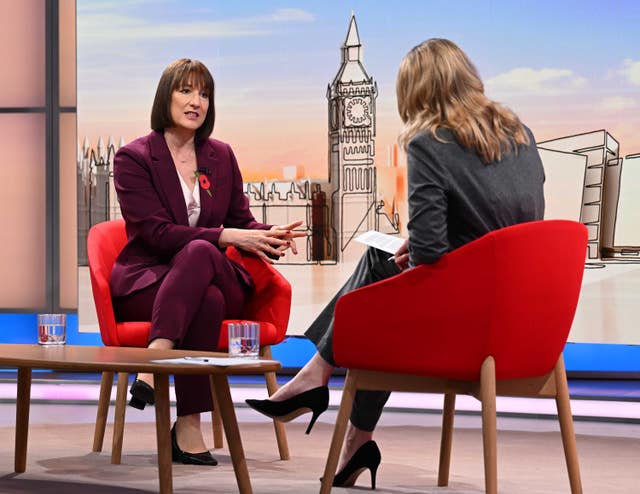Rachel Reeves has defended her proposed reforms to inheritance tax on farms by claiming it is not “affordable” keep the current system.
The Chancellor faced a backlash after using her first Budget to propose changing agricultural property relief (APR) and business property relief (BPR) from April 2026 in a bid to raise more funds for public services.
Budget documents state the Government wants to restrict the “generosity” of APR and BPR for the “wealthiest estates”.
But for assets over £1 million, inheritance tax will apply with 50% relief, at an effective rate of 20%.
Ms Reeves said “only a very small number of agricultural properties” will be affected, although the National Farmers’ Union warned the reforms could force farmers to sell their family farms to pay the inheritance tax bill.
The Chancellor was played a clip of Rebecca Wilson, a fifth-generation farmer from Yorkshire, raising concerns about the changes.
Ms Wilson, appearing on the BBC’s Sunday With Laura Kuenssberg programme, said: “On paper our farm is a valuable asset. But farmers like us often work very hard for very low returns and we rarely have surplus cash in the bank.
“Even using personal allowances, the Chancellor’s proposal could hit us with a tax bill of nearly £1 million when my parents die.
“How is the Chancellor going to ensure that my generation will keep on farming in light of the changes announced in the Budget?”
Ms Reeves, appearing on the same programme, replied by offering details on APR, adding: “So you can pass on without paying any tax, for most cases, a farm worth £3 million.
“After that the tax rate for inheritance tax for agricultural property is 20% compared to 40% that everyone else pays, and you can pay that over a 10-year period interest-free.”

“I hope that Rebecca and her family will look through the details because, if the farm is owned by two people, you have £3 million essentially tax-free and then the tax rate is a 50% discount on everyone else and you would have 10 years to pay it.
“So only a very small number of agricultural properties will be affected, but last year the benefits of agricultural property relief, 40% of the benefit was felt by 7% of the wealthiest land owners.
“I don’t think it is affordable to carry on with a relief like that when our public finances are under so much pressure.
“And, of course, farmers as well rely on good public services, whether that’s the NHS, our roads or our schools, and that money will be put back into improving our public services and putting our public finances on a firm footing.”






